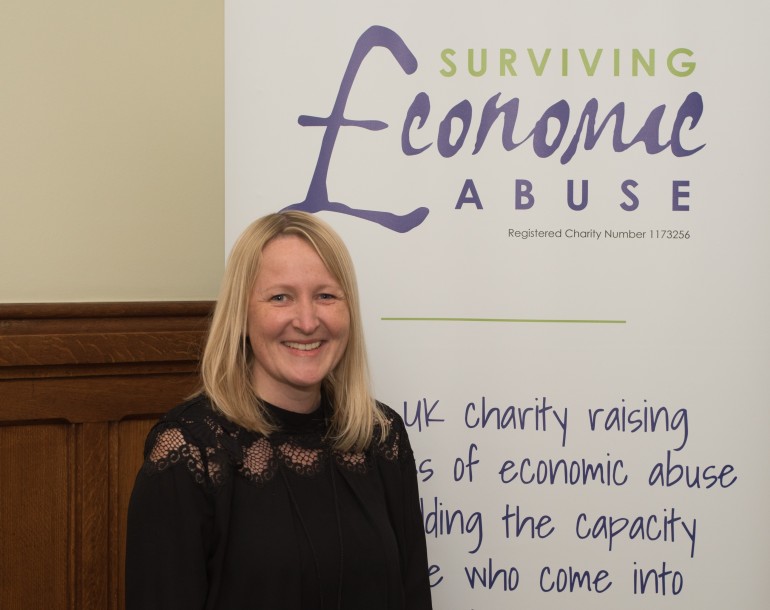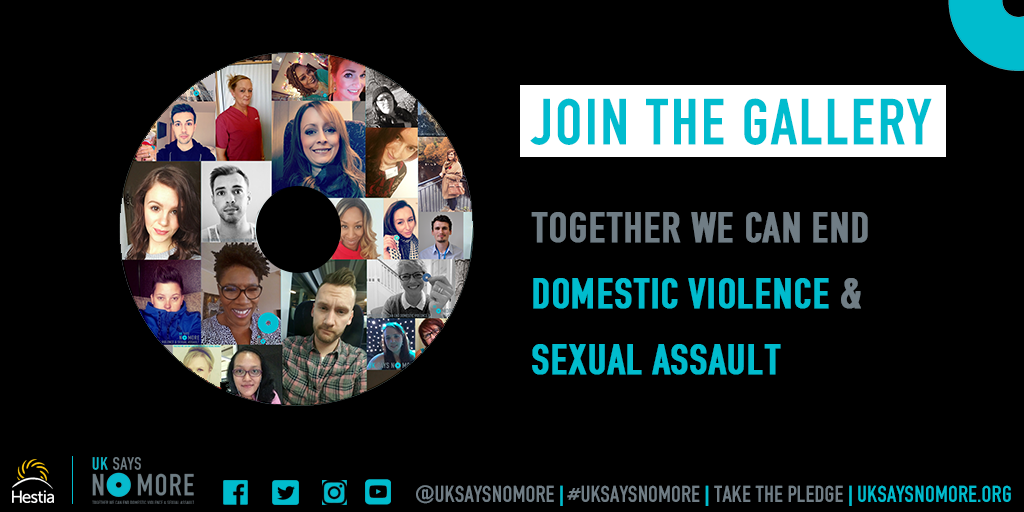Surviving Economic Abuse has joined the UK SAYS NO MORE campaign as an official partner
We’re excited to announce that Surviving Economic Abuse (SEA), a UK charity that focuses specifically on the financial aspect of domestic violence, has join the UK SAYS NO MORE campaign as an official partner.
Domestic Violence is a complex issue with many different elements and factors, all of which ultimately relate back to power and control. One such element used by perpetrators to control their victim is that of economic/financial abuse, a type of abuse that is still today excessively overlooked and misunderstood.
That’s why charities and organisations such as Surviving Economic Abuse (SEA) are so crucial in today’s society – if we are to combat and put a stop to domestic violence, an initial step is fully comprehending all forms of abuse and the scale on which they operate.
In the context of domestic violence, economic abuse is defined as: ‘Behaviours that interfere with a woman’s ability to acquire, use and maintain economic resources (Adams et al. 2008)’.
There are many aspects of economic abuse, including:
- Being prevented from getting a job
- Being harassed by your partner at work (in person, by phone or by other electronic means)
- Being denied access to money; monitoring your activity and spending
- Having major financial decisions made without your agreement
- Running up debts.
Surviving Economic Abuse (SEA) is the UK charity raising awareness of economic abuse and is committed to building the capacity of those who come into contact with victims and survivors of economic abuse to respond. This is done through sharing expert knowledge and developing useful tools and resources. SEA work with partner organisations, including UK SAYS NO MORE, to implement innovative responses. Another aspect of their work involves identifying and sharing best practice and research.
Nicola Sharp-Jeffs, Director of Surviving Economic Abuse (SEA), said:
“We are excited to be joining the UK Says No More campaign. Their work is crucial in raising awareness of all forms of domestic violence and abuse so that victims and survivors are able to access the support they need. Through our membership we hope to highlight economic abuse and the economic harm that is caused by domestic violence more broadly.”
This week, Surviving Economic Abuse has been featured across various media outlets, including on BBC breakfast earlier in the week and BBC Radio 4. Speaking to Radio 4, Nicola said:
“When we talk about domestic violence, the images that we conjure up still are women with black eyes and injuries, and we don’t understand that one way in which women are controlled is through finances and access to economic resources. Another thing we hear all the time is ‘why didn’t they just leave?’ – but if they don’t have access to a car or some money for a train ticket or somewhere to go, or the means to an income to be able to support themselves and any children that they might have, then we start to realise how much economic abuse poses as a barrier to women who need to escape their abuser.”
You can listen to the full report (46:18 – 50:35) on BBC Radio 4 here. The report discusses the push by charities such as Surviving Economic Abuse on the government to make the law clearer on the issue and a detailed account from a victim describing the devastating impact that this type of abuse can have.
Speaking to Surviving Economic Abuse, one survivor said:
“This is long lasting and life changing. I suffered quite severe abuse, physically and sexually, and yet I can walk away from that. It’s the economic bit that on the surface doesn’t look so bad but actually that’s the one that is going to have lasting effect.”
Fore more information on Surviving Economic Abuse, head over to their website or give them a follow on Twitter.
If you are interested in becoming a partner, please contact Lyndsey Dearlove (Violence Against Women and Girls Partnership Mananger) at [email protected].
You can support UK SAYS NO MORE by:
- Adding your photo to the Gallery, joining others nationwide saying “NO MORE” to domestic violence and sexual assault.
- Sharing the campaign materials on social media and with friends, family and colleagues, to start a conversation around these issues.
- Pledging to learn more and take a stand by challenging derogatory language or the perpetuation of myths through learning and sharing of this knowledge.




